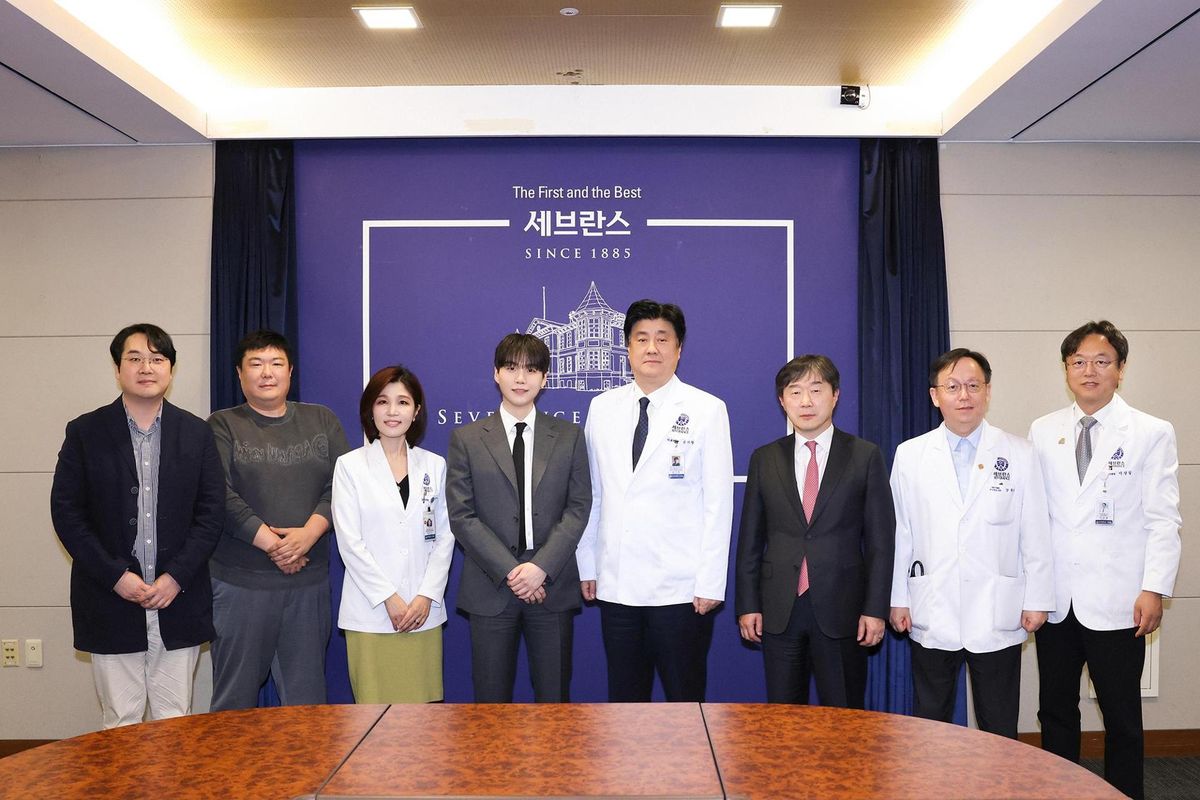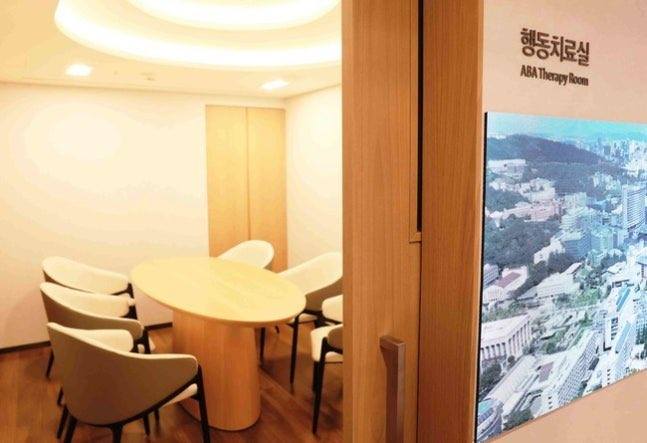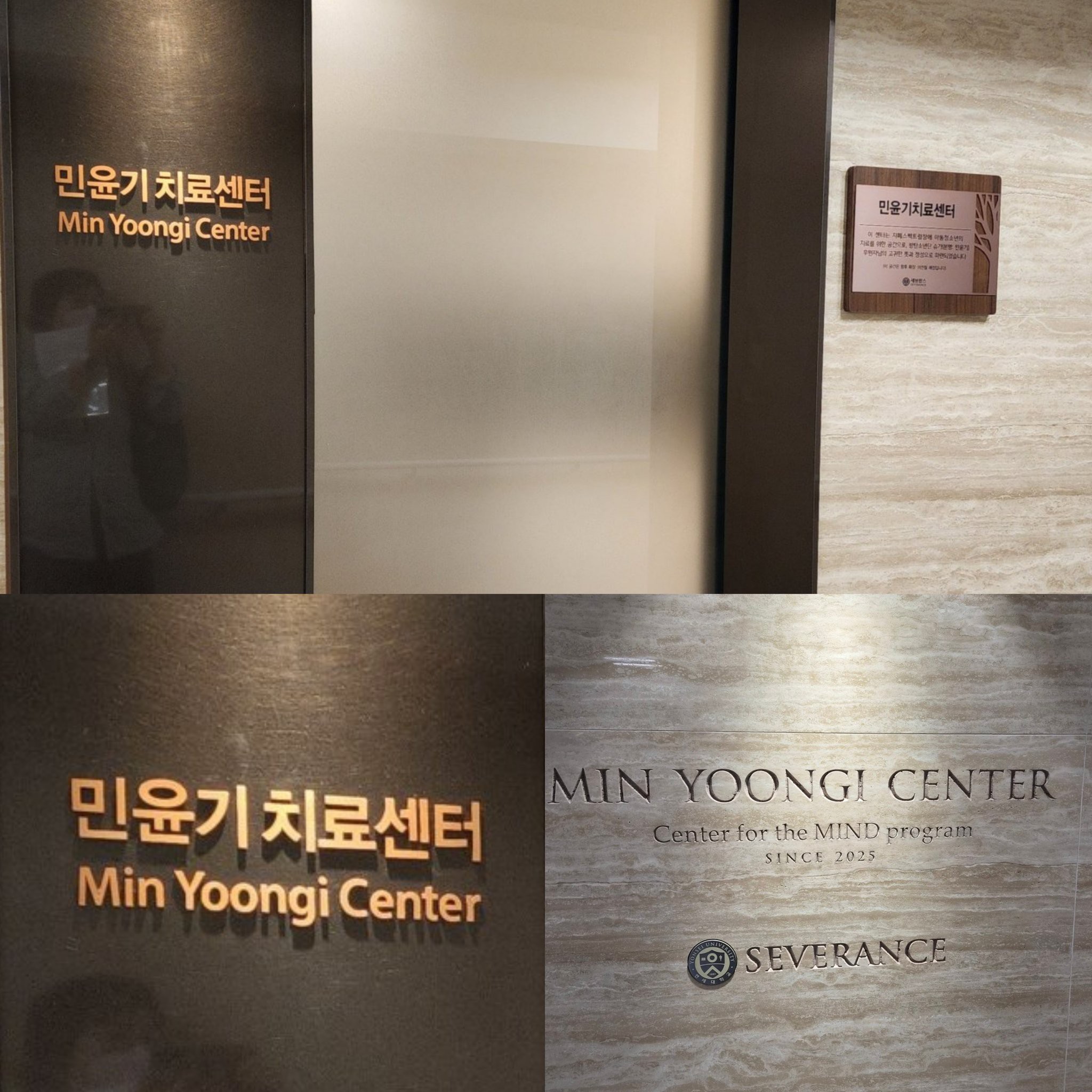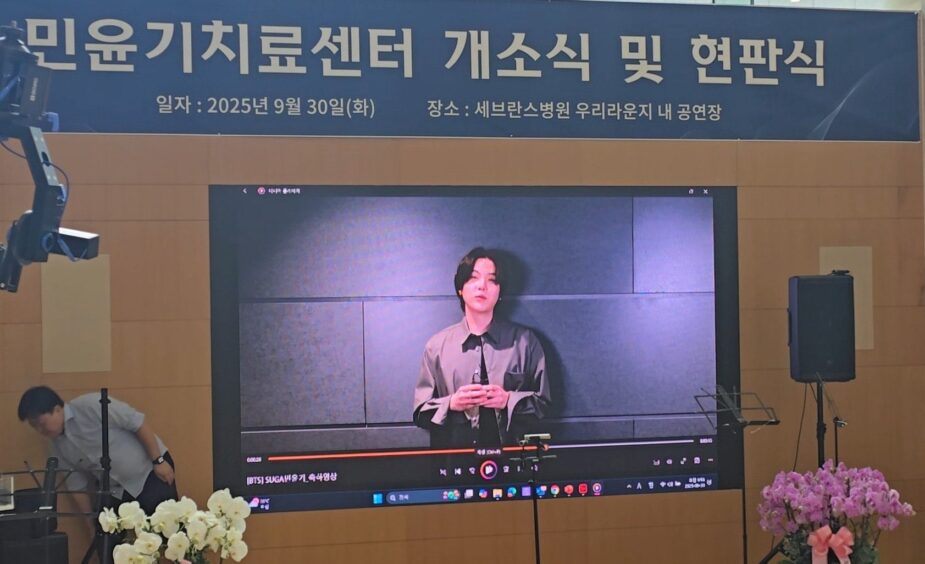SEOUL, South Korea — What began as a quiet act of generosity has now blossomed into a groundbreaking initiative. On September 30, 2025, BTS member Suga (Min Yoon-gi) officially opened the Min Yoongi Treatment Center at Severance Hospital in Seoul — a first-of-its-kind facility in Korea dedicated to supporting children with autism spectrum disorder (ASD) through music-based therapy and holistic care.
The center, established through Suga’s ₩5 billion (US$3.6 million) donation, stands as a testament to his deep empathy and understanding of those who often struggle to communicate their inner worlds. According to Severance Hospital and reports from Korea JoongAng Daily and The Korea Herald, the facility includes specialized rooms for language, behavioral, music, and social group therapies, as well as caregiver spaces adorned with artwork by Lee Gyu Jae, an autistic artist whose creations celebrate neurodiversity and self-expression.

More than just a namesake, Suga was personally involved in the creation of the center’s unique therapy model called MIND (Music, Interaction, Network, Diversity) — a program that uses music as a tool to build communication, emotional awareness, and social skills among children with ASD.
“Music has always been my way of understanding emotions — both mine and others’. Through this program, I hope children can discover their own ways to connect with the world,” Suga shared in an earlier statement released by the hospital.
The multidisciplinary care team at the Min Yoongi Treatment Center is composed of psychiatrists, psychologists, and speech, behavioral, and music therapists working together to provide individualized treatment. The approach, experts say, could reshape how autism therapy is delivered in Korea, integrating clinical science with emotional resonance.


Suga’s involvement with Severance Hospital began even before the center’s construction. During his military service, he reportedly volunteered in music therapy sessions with children, often playing guitar during activities to help them express feelings and emotions. Hospital staff and parents alike recalled how his calm presence brought comfort to both children and caregivers.
What makes this project even more remarkable is that it was conceived months before Suga’s military discharge—planned quietly and without fanfare. Known for his reserved personality, Suga rarely publicizes his acts of charity, preferring to let the results speak for themselves. His donation is now recognized as one of the largest ever made by a K-pop artist to a medical institution in South Korea.
Fans across the globe, many of whom affectionately call themselves “Yoongi-biased,” have taken to social media to express pride and gratitude. For them, the opening of the Min Yoongi Treatment Center embodies what Suga represents — authenticity, compassion, and an unwavering desire to use music for healing.
“Suga has always been transparent about his struggles with mental health,” one fan wrote on X. “That’s what makes this center so meaningful — it’s not just a donation, it’s a reflection of who he is.”

Beyond its immediate services, the Min Yoongi Treatment Center aims to become a hub for research, education, and advocacy for neurodiverse individuals. The hospital plans to host its first therapy workshop in November and a music concert at Yonsei University in December, both supported by Suga himself.
For a global superstar known for his introspection and humility, this project represents more than philanthropy—it is a continuation of his life’s message: that healing, like music, is universal.
Even in silence, Suga’s actions speak volumes. His legacy now extends far beyond the stage — into therapy rooms, children’s laughter, and the hearts of families who will find hope at the Min Yoongi Treatment Center.
Thank you for your quiet strength, Suga. The world sees you, and we are deeply grateful of your existence.







